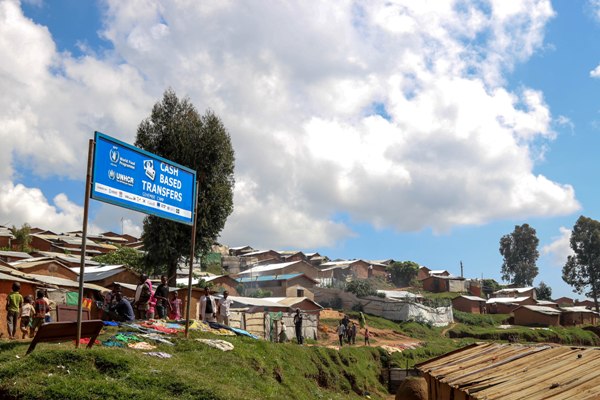
Kigali: The United Nations World Food Programme (WFP) expresses gratitude to USAID/Food for Peace for the contribution of US$ 9 million to support food and nutrition assistance to Burundian and Democratic Republic Congolese refugees in Rwanda.
As of April 2019, Rwanda has hosted over 79,000 Congolese refugees and asylum seekers for over two decades, mainly coming from conflict-affected areas of the DRC’s North Kivu Province. Additionally, following violence and insecurity in Burundi in 2015, over 70,000 Burundians sought refuge in Rwanda. About 90 percent of refugees in Rwanda live in camps and remain highly dependent on humanitarian assistance to meet their basic needs as access to land and income-generating opportunities continue to be limited.
The contribution from USAID/Food for Peace comes at a critical time when humanitarian needs keep growing, fuelled by conflicts and climate change around the world. Given the protracted nature of the refugee situation in Rwanda, the operation is increasingly becoming a forgotten crisis in a region with many active conflicts.
“We are thankful for the continuous support we receive from the American people and specifically for this critical contribution,” said Edith Heines, WFP Rwanda Representative and Country Director. “Thanks to this generous and timely grant, we will now be able to ensure lifesaving food assistance refugees continue to depend on over the coming months,” she added.
This funding will enable WFP to meet the immediate needs of nearly 75,000 Congolese and 61,000 Burundian refugees hosted in six camps in Rwanda up to July/August 2019. The WFP Rwanda faces significant funding shortfalls for the second half of the year (starting August 2019). The USAID contribution will enable WFP to provide cash for food assistance to refugees, as well as buy locally produced nutritious food commodities such as fortified blended foods for malnourished children.
Besides providing food assistance to Burundian and Congolese women, men and children residing in refugee camps in Rwanda, WFP provides school meals for refugee and host community school children attending the same schools in and around the camps. WFP also provides food assistance to Rwandan returnees.
In the nutrition programme, WFP provides specialized nutritious foods for the treatment of moderate acute malnutrition for children under five years of age; prevention of malnutrition for children aged six months to two years of age and pregnant women and breastfeeding mothers; and people living with HIV/AIDS & TB patients on medication in the camps.
The United States is the largest donor to WFP humanitarian and development programmes in Rwanda, contributing US$ 14.9 million in 2018 of which US$ 10 million for food assistance to refugees. (End)
